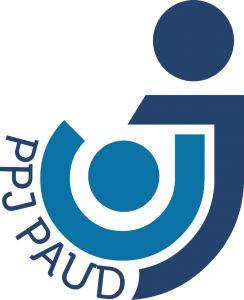PENGENALAN MEMBACA AL-QURAN DI TAMAN KANAK-KANAK SABBIHISMA 4 PADANG
DOI:
https://doi.org/10.30736/jce.v6i1.812Keywords:
Pengenalan, Huruf Hijaiyah, Taman Kanak-kanak,Abstract
Penelitian ini bertujuan untuk mendeskripsikan pengenalan membaca al-quran pada anak di Taman Kanak-kanak Sabbihisma 4 Padang Penelitian ini menggunakan metode deskriptif kualitatif. Informasi dalam penelitian ini adalah kepala sekolah dan guru di Taman Kanak-kanak Sabbihisma 4 Padang. Teknik pengumpulan data yang terdiri dari observasi, wawancara dan dokumentasi. Adapun teknik analisis data dilakukan dengan cara pengumpulan data, reduksi data, penyajian data, dan menarik kesimpulan. Sedangkan teknik keabsahan data menggunakan teknik trianggulasi. Hasil penelitian secara umum diketahui bahwa pengenalan membaca al-quran pada anak yaitu dilakukan dengan menggunakan jembatan titian dengan menggunakan benda-benda yang terdekat dengan anak, lalu menggunakan berbagai metode pembelajaran dan media pembelajaran sebagai penunjang proses dalam pengenalan membaca al-quran pada anak.ÂReferences
Bawono, Y. (2017). Kemampuan berbahasa pada anak prasekolah : Sebuah kajian pustaka. Prosiding Temu Ilmiah X Ikatan Psikologi Perkembangan Indonesia, 116–125. http://jurnal.unissula.ac.id/index.php/ippi/article/view/2181 diakses tanggal 26/12/2020
Latif, dkk. (2016). Orientasi Baru Pendidikan Anak Usia Dini. Jakarta: Kencana.
Madyawati, L. (2016). Pengembangan Pembelajaran PAUD. Pt. Remaja Rosda Karya.
Marlina, S., Pransiska, R., & Qalbi, Z. (2021). Analisis Kurikulum Pendidikan Islam di Taman Kanak-Kanak Aisyiyah Bustanul Athfal Padang. Jurnal Obsesi : Jurnal Pendidikan Anak Usia Dini, 6(2), 844–855. https://doi.org/10.31004/obsesi.v6i2.1143
Marlina, S., Qolbi, Z., & Putera, R. F. (2020). Efektivitas Kemerdekaan Belajar Melalui Bermain Terhadap Karakter Anak TK
Baiturrida Kabupaten Padang Pariaman. Jurnal Imiah Potensia, 5(2), 83–90.
Mayasari, D. (2020). Program Perencanaan Pembelajaran Matematika. Deepublish.
Mutiah, D. (2016). Psikologi Bermain Anak Usia Dini. Prenada Media Group.
Susanto, A. (2017). Pendidikan Anak Usia Dini. PT Bumi Aksara.
Suwardani, N. P. (2020). “QUO VADIS†Pendidikan Karakter: Dalam Merajut Harapan Bangsa Yang Bermatabat. UNHI Press.
Downloads
Published
How to Cite
Issue
Section
License
Please find the rights and licenses in JCE (Journal of Childhood Education). By submitting the article/manuscript of the article, the author(s) agree with this policy. No specific document sign-off is required.
1. License
Use of articles will be governed by the Creative Commons Attribution - ShareAlike license as currently displayed on Creative Commons Attribution-ShareAlike 4.0 International License.
2. Author(s)' Warranties
The author warrants that the article is original, written by stated author(s), has not been published before, contains no unlawful statements, does not infringe the rights of others, is subject to copyright that is vested exclusively in the author and free of any third party rights, and that any necessary written permissions to quote from other sources have been obtained by the author(s).
3. User Rights
JCE (Journal of Childhood Education)'s spirit is to disseminate articles published are as free as possible but there is a little payment for publication. Under the Creative Commons license, JCE (Journal of Childhood Education) permits users to copy, distribute, display, and perform the work for commercial purposes. Users will also need to attribute authors and JCE (Journal of Childhood Education) on distributing works in the journal and other media of publications.
4. Co-Authorship
If the article was jointly prepared by more than one author, any authors submitting the manuscript warrants that he/she has been authorized by all co-authors to be agreed on this copyright and license notice (agreement) on their behalf, and agrees to inform his/her co-authors of the terms of this policy. JCE (Journal of Childhood Education) will not be held liable for anything that may arise due to the author(s) internal dispute. JCE (Journal of Childhood Education) will only communicate with the corresponding author.
5. Miscellaneous
JCE (Journal of Childhood Education) will publish the article (or have it published) in the journal if the article’s editorial process is successfully completed. JCE (Journal of Childhood Education)'s editors may modify the article to a style of punctuation, spelling, capitalization, referencing and usage that deems appropriate. The author acknowledges that the article may be published so that it will be publicly accessible and such access will be free of charge for the readers as mentioned in point 3.
JCE (Journal of Childhood Education) by Universitas Islam Lamongan is licensed under a Creative Commons Attribution-ShareAlike 4.0 International License.Based on a work at http://journalfai.unisla.ac.id/index.php/jce.












